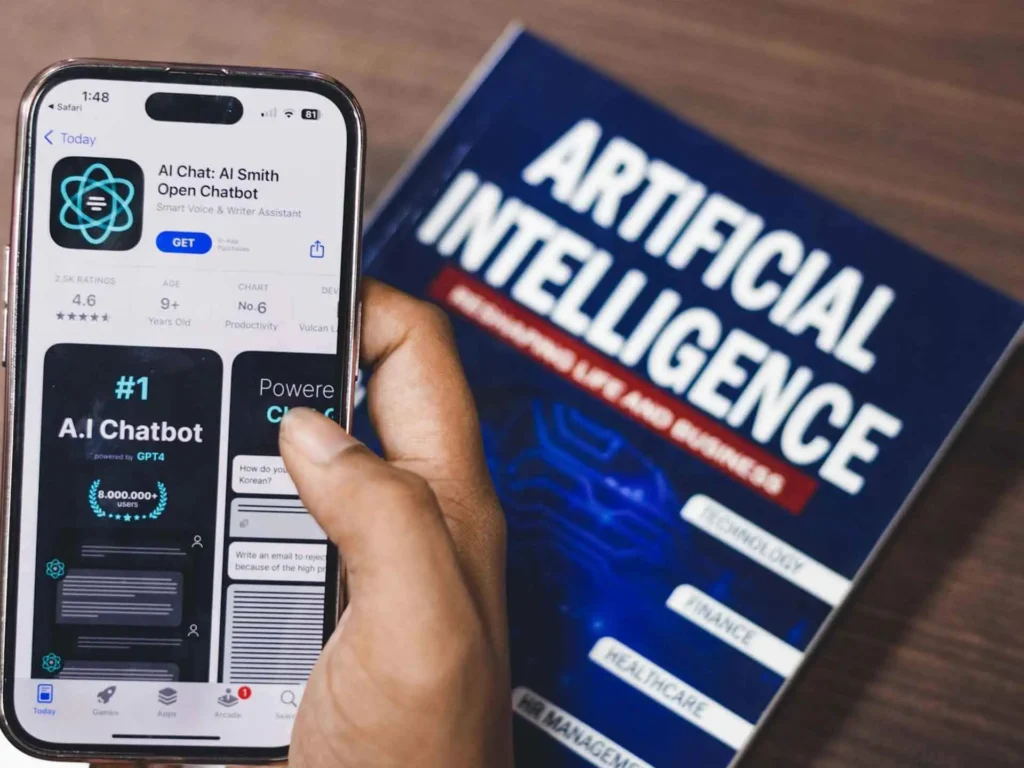What is the future of artificial intelligence? How do we create it ethically? Given how fresh the mainstream adoption of AI is, that might seem like jumping the gun. However, AI has been a game changer for work and life. Like any powerful tool, AI brings both fantastic opportunities and significant challenges we need to understand. As with any powerful tool, we need to do it sooner rather than later. Today, we will explore the dual nature of AI, how it affects businesses and society and what this means for you.
The Bright Side: AI as a Force for Good
AI is already improving our lives, often in ways we don’t even notice. For example, AI can optimize traffic flow in cities and improve public transportation efficiency. It is also making our phones smarter. We can now use GPS navigation on our phones, find songs we love in a click and crunch office admin fast.
For businesses, AI is like having a brilliant partner who can:
- Sort through mountains of data in seconds
- Predict what customers want before they ask
- Handle routine tasks while humans focus on creative work
- Help make better decisions based on patterns a human might miss
These benefits show how AI can make our world more efficient and help solve big problems. It’s like having a microscope and telescope combined. It is a nifty tool that helps us see both tiny details and big patterns we couldn’t spot earlier faster and more efficiently than human reaction times can.
The Challenging Side: Understanding the Ethics of AI and its Risks

But just like any potent tool, AI requires responsible management. Imagine giving a very smart robot a task but forgetting to explain all the rules. It might complete the job in unexpected ways or not at all. This is one of the major challenges we face with AI.
The ‘smarter’ we make AI-based systems, the more the future of artificial intelligence needs careful planning, especially as we approach the vanishing point where AI could be considered conscious.
Some key concerns include:
Privacy and Data Protection
You can’t learn without input. Neither can AI. Like a student needing a textbook, AI tools need data to work well. Lots of it. This raises questions about how companies collect and use our personal information, especially when that data is then used within AI training datasets.
This is set to be one of the true benchmarks in the ethics of AI. There’s a huge gap between datasets built ethically with transparency and those pulled from the internet without consent. Not only does the use of unprovenanced, unethically collected data raise questions about AI use, but it also results in junky, poor returns for the user.
Fairness and Bias
AI systems learn from existing data and so they can pick up human biases. If the data shows past unfair decisions, the AI might repeat these patterns. It’s like teaching someone using history books that only tell part of the story. Addressing these biases and finding a way to remove them from AI results, is another key challenge in the ethics of AI.
Job Market Changes
While AI creates new jobs, it also changes or replaces others. This isn’t necessarily bad, but we must prepare for change. We’ve seen this many times before. When industrial automation arose. When cars replaced horses. It was even a key part of the dawn of the computer age! However, humans fear change and shifting job needs and skill sets are scary. It’s important to navigate these shifts with empathy as we move to the future of artificial intelligence.
Environmental Issues
An often hidden aspect of the dual nature of AI lies in its environmental demands. Crunching the volume of data and queries AI does requires a lot of power. That power use means knock-on effects on the environment that can be demanding. There is a need to focus on cleaner and less resource-heavy ways to operate AI data centres.
Finding Balance: The Path Forward for the Dual Nature of AI

The future of artificial intelligence depends on how we handle these opportunities and challenges. AI is reshaping how we work and live. But we must properly create the groundwork to do so ethically before we can plunge into a tech-powered future. There’s much more to be said about the ethics of AI than we can cover in one blog! It is, in itself, an evolving area of AI development.
You may also feel like this doesn’t really matter to you. You’re not creating the technology or hosting its data centres. However, there’s a lot businesses and individuals can do to work towards a better future of artificial intelligence.
Paying attention to the ethics of AI isn’t just about top-level issues, either. You may not be an industry shaper writing papers on ethical datasets. You don’t personally train ChatGPT. But it matters to your company that you use them well.
As we noted above, using unethically sourced data sets for your AI tools will create complications for you, too. Copyright and IP enforcement issues can affect you. Unhappy creators whose work was scraped could still take action against your company. And the impact of bad publicity can hurt your brand.
So, what can you do to balance the dual nature of AI while enjoying its positives? Here are some actionable steps to take:
1. Embrace Responsible Innovation
- Start small with AI projects and test them carefully
- Keep humans in the loop for important decisions
- Regularly check if AI systems are working fairly
2. Focus on Education
- Learn how AI works (you don’t need to be a tech expert!)
- Train teams to work alongside AI tools
- Stay updated on AI developments in your industry
3. Build Trust and Transparency
- Be open with customers about how you use AI
- Create clear guidelines for AI use in your business
- Listen to concerns and adjust your approach
The Future of Artificial Intelligence: Making AI Work for Everyone
The ethics of AI aren’t just about avoiding problems—they’re about creating something better. Think of it like developing a new city. We must build it right from the start, with good rules and planning so that everyone can benefit.
Some practical steps we can all take for ethical AI use include:
- Set Clear Boundaries
- Decide where AI should and shouldn’t be used
- Create guidelines for data collection and use
- Review ethics of AI systems regularly Regular
- Keep the Human Touch
- Use AI to support, not replace, human judgement
- Maintain personal connections with customers
- Balance automation with human interaction
- Plan for the Future
- Prepare your team for AI-related changes
- Invest in training and development
- Stay flexible and ready to adapt
The dual nature of AI presents both exciting possibilities and important responsibilities. By understanding both sides, we can make better choices about how to use this powerful technology.
Remember, AI is a tool, not a solution for everything. The best results come from combining AI’s best features with human skills. So it’s natural that ethical considerations for the human should guide AI development and use
As we progress with AI, the goal isn’t just to make things faster or more efficient. It’s about creating a future where technology helps everyone live better while protecting what makes us human.
Your role in shaping this future starts with understanding the dual nature of AI and making informed choices about how to use it. Whether you’re a business owner, marketer, or curious individual, your awareness and actions matter in ensuring AI develops in ways that benefit everyone.
If you’re ready to explore the often under-considered aspect of the ethics of AI use in business, feel free to reach out to AI-First MindsetTM today. We are globally recognized as the thought leader in the fair use of AI and in developing a human-focused approach for business leaders.
Recent Posts
-
Published on: November 25, 2025
-
Published on: November 18, 2025
-
Published on: November 11, 2025








